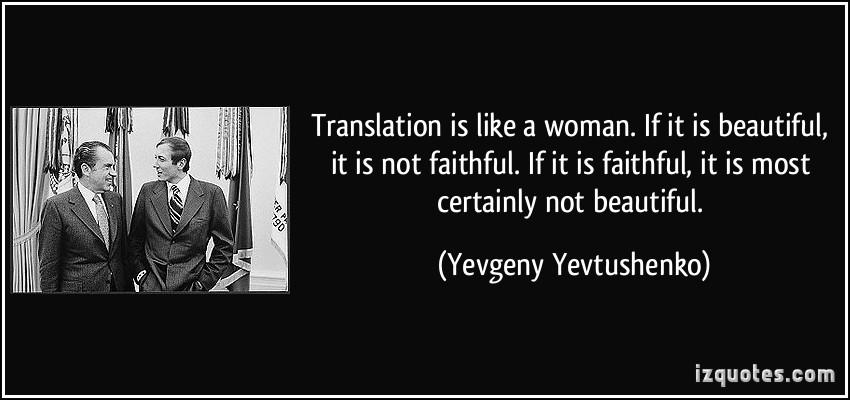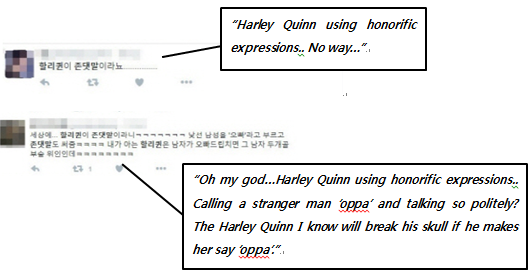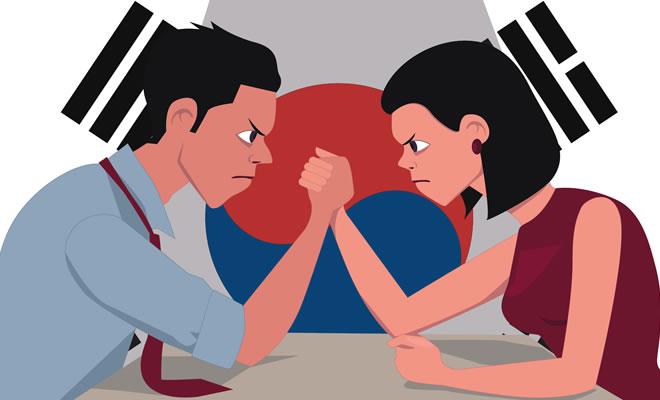
Globalization, Translation and Feminism in Korea
The case of Korea clearly shows how globalization, translation, and western feminism gradually established a new female identity and a new way of looking at women in society. In this articlet, I show that even in a very closed and conservative country, foreign interactions and the inflow of new ideologies can trigger a tremendous change, not just with the people, but within society as a whole.
Translation and feminism in Korea
Globalization is not a new phenomenon, but has evolved throughout history. The sharing of knowledge and culture that transcends borders is not a new story. It has been practiced for a long time already. One remarkable medium that enabled the interaction between nations was translation, as it surpassed the limitation of interaction due to the differences between languages.
In Cross-Cultural Management: A Knowledge Management Perspective (Holden, 2002), translation is described as “by far the oldest universal practice of conscientiously converting knowledge from one domain (i.e. a language group) to another”. Going a step further, translation is also “a kind of knowledge conversion, which seeks to create common cognitive ground among people, among whom differences in language are a barrier to comprehension" (Holden, 2002).
This change of thinking among Koreans as an effect of western ideology cannot be dubbed Westernization.
This article will focus on the power of translation in ‘knowledge conversion’ and in creating ‘common cognitive ground’. Translation opened the gate for the inflow of western feminism into the strictly patriarchal Korean society, which changed the way womanhood was perceived and led people to question gender equality in Korea.
This change of thinking among Koreans as an effect of western ideology cannot be dubbed Westernization. Rather, the notion that ‘women should be treated equal as men’ can be considered the result of hybridization of western feminism and Korean language, accomplished by western feminists and enlightened Korean women.
In order to elaborate this complex hybridization process, it seems crucial to examine the long-term interaction between translation and women that has taken place in the past, the transitional stage when translations of foreign works spread in Korea and triggered the shift in Korean women’s identity, and finally the establishment of the new hybrid perspective of Koreans of today, that critically views translation in regards to gender equality.
Translation and women
The relationship between translation and women is ambivalent. Translation was a tool for both the confinement and the liberation of women. History shows that while translation kept women in a subordinate position by using languages that reinforce sexual inequality. At the same time, it also made women aware of their new role as an equal 'individual'.
In the 17th century, a stereotypical image of women was directly applied to describe translation: translations are "les belles infidéles", which means that “like women, translations must be beautiful or faithful" (Simon, 1996). Traditionally, women were used as ‘metaphors’ for translation, specifically with regards to their fidelity, passivity and purity, which intensified their inferior status compared to men. However, translation also allowed women to reveal their inequality and oppression to the world.
Translation compared to women by Yevgeny Yevtushenko (Russian Poet and film director)
The Canadian Feminist translation project in Quebec that took place in the 1990s, was a collaborative work of feminist translators looking for new expressions in translation, to free language and society from the burden of patriarchy. Their translation practice was “a political activity aimed at making language speak for women” (Simon, 1996). This unprecedented approach to translation gradually started to shift the invisibility of women to visibility not only in translation, but also in real life. Consequently, many people now feel a sense of uncomfortableness or wrongness when they see a translation that incorporates any lines of sexism.
The perspective of viewing translation in such way originally stemmed from western countries, but spread throughout many parts of the world and has become ‘global’. The influence of using translation for enhancing women’s status in society also reached nations that still had a strong patriarchal culture, which inevitably collided with it. This was, for example, the case in South Korea. The nation has long been a highly patriarchal and conservative society.
However, translation opened the door to many opportunities for women throughout Korean history. Translation awakened women, and they awakened Korean society. The deep interaction between translation and women formed a ‘global, hybrid and transnational collective identity that observes how women are treated in translation. This was also applied to Korean translation by applying the western feminism to the language, which has a strong gender hierarchy embedded in it. This can be viewed from the framework of ‘hybridization’, the combining of two distinctly different culturs and languages. That is, the female identity in western countries became transnational, expanded its influence to Korean society via translation, and thereby made Koreans perceive the gender hierarchy in Korean translation as a ‘problem’.
Translation of foreign texts and escape from the traditional feminine virtue in Korea
Korean society has long been patriarchal, because it had a strict Confucian culture. During the Joseon dynasty, the invention of ‘hunmin jeongeum' (Korean language), allowed for the translation of many Chinese works. During this time, many Chinese educational texts were used to teach women about feminine virtues: being a wise mother and a dutiful wife. The translation of Chinese texts for women “was considered crucial in maintaining social stability”(Hyun, 2004).
In other words, translation only strengthened the fixed gender hierarchy in Korean society and confined women to the ‘traditional roles’ decided by men. However, the invention of ‘hunmin jeongeum’ also led women to participate in translating works of Buddhist scripture, Chinese classics and fictional narratives. At the same time, they developed ‘Kasach’e’, a traditional Korean poetry, to express the sorrows and joys of women's lives.
In 1894, many foreign literatures from Great Britain, Russia, France, the United States and Germany were translated to Korean, pushing the country to absorb foreign culture and experience a sociopolitical ‘change’. One of these changes occurred among women. During the time when Korea was threatened by Japanese colonial domination, translated texts from western countries encouraged women to participate in patriotic activities.
One of the translated texts was The Story of a Patriotic Lady (1907), the book about Joan of Arc, which was published in Korea with the title Aeguk Puinjon. The book presented a new female model of ‘a woman as a national heroine’, and thereby gave Korean women a new duty: to participate in saving the nation from foreign aggression.
Consequently, the traditional feminine virtues related to patriarchal society faded with the new ideal of ‘feminine sacrifice’ for the country. From the 1920s to 1930s, translations of foreign works introduced the ‘New Woman’ ideal to the Korean society, which created the new Korean term of “Sinyeoseong” to refer to women who received modern and western-style education.
Love and Marriage (1911) and A Doll's House (1879)
The translation of Ellen Key’s Love and Marriage (1911) and Henrik Ibsen’s A doll’s house (1879) introduced unprecedented concepts to Korean women, such as freedom of choice in love and marriage, breaking away from oppression and looking for new possibilities for women’s lives other than being obedient wives. Hence, a change in women’s identities and their perception was gradually taking place in Korea, due to the power of translation. A country that once used to be structly confucianist and patriarchal embraced a foreign ideology through translation, and as the new ideology spread, people started to question womanhood in Korea.
The impact of hybridization: The new female identity in Korean translation
Hybridization is defined as “the ways in which forms become separated from existing practices and recombine with new forms and new practices” (Rowe and Schelling, 1991). The general meaning of hybridization is a “cross-category process”; “the mixture of phenomena which are held to be different, separate” (Pieterse, 2003).
Traditional womanhood became separated from existing patriarchal Korean society, and recombined with new forms, in this case, the feminism from the west. Korean society was different and separated from the notion of feminism or female equality. However, within the frame of globalization, the interaction between Korean society and western feminism through the medium of translation provoked the hybridization of these two significantly different cultures. As a result, the new hybrid identity of Korean women, women being equal as men, was created and this transnational female identity influenced the entire Korean society on how to critically view gender issues in Korean translations.
The problematic scenes in the trailer of Suicide Squad(2016) and the boycott poster
In 2016, the trailer of film Suicide Squad aroused criticism regarding the subtitle that used sexist expressions for the lines of Harley Quinn. This stems from ‘honorific expressions’ in Korean language. Unlike English, there are certain words and expressions in Korean that a person must use to show respect and politeness to the listener. Simply put, while students can just say “hello” to their friends, teachers and grandparents in English, there is a strict line between talking to friends and talking to teachers or grandparents in Korean. Influenced by Confucianism, respect and politeness towards the elderly is considered as the most important virtue to Koreans.
However, this Confucianism and emphasis on politeness has especially oppressed women . The Confucian idea of the ‘dominance of man over woman’ prevailed in the past, which pushed women to speak politely by using honorific expressions to men. Although times have changed, the idea still seems to be embedded in Korean translation.
The character of Harley Quinn in the film is just a member of the suicide squad, equal to any other, who actually should not show any respect to others according to what her character is like. However, the Korean subtitle that used honorific expressions like “-yo” at the end of sentences, or words such as “oppa”, which indicate that she has a lower status compared to other male characters. This changed her into a more polite and submissive character.
Nevertheless, it is important to note that this issues was being criticized, indicating a ‘change’ in Korean society. A Korean dubbing artist Sora Yoon commented on Twitter:
“I have been doing this work for 30 years, and this is an issue that I have always experienced. It’s really funny that when the two become lovers, only the man starts to talk down. Even when there is absolutely no difference in the original English lines…”

Criticism about the subtitle on Twitter
The Korean fans of DC comics and other viewers of the trailer also criticized the subtitle, as well as boycotting the translator on Twitter. As a result, the subtitle was modified in the actual film. Koreans now feel that it's wrong when they see any sexism in translated texts, because the thought that ‘women should be treated equally’ is established in their minds due to the influence of western feminism. They also feel that the unreasonable traditional Confucian ideas about women are wrong. Slowly, but certainly, views on women in Korean society are shifting towards the global and transnational perspective , keeping keen eyes on outdated sexist ideas along with meaningful criticism. Consequently, traditional Confucian ideas can no longer fit into Korean translation.
Korea in 'translated worlds': Keeping the gender hierarchy 'invisible' in Korean translation
The feminism the western world brought into the Korean language (which itself is a highly hierarchal language) is a very unique form of hybridization: two conflicting elements have been combined together. Feminism is one of the theories that has had an influence on various types of societies, and the patriarchal society was not an exception. Gradually, it has made women 'visible' in translation in Korea, while making gender inequality 'invisible'.
At this point, it seems important to stress once again that globalization is not new and is not a short-term process. The interaction of translated texts that introduced foreign feminist ideology and ignited the change in Korean women occurred decades ago and is still an ongoing process today. The globalization of feminist ideas empowered women in Korea, but as the current era of globalization provides us with numerous types of translation media and surrounds us with translations it seems even more important to consistently monitor and be alarmed by any sexism in the Korean translation. `
After all, “the globalization of culture means that we all live in ‘translated’ worlds" (Simon, 1996). The gender hierarchy did not entirely vanish in Korean translation practises, but rather is 'hidden' from the surveillance and criticism of people. The society has to keep on monitoring, or the hierarchy will come back to the language again. The responsibility lies solely with the people in Korean society of the Korean society. "You cannot change any society unless you take responsibility for it, unless you see yourself as belonging to it and responsible for changing it" (Boggs, 2005).
References
Harewood, Adrian & Keefer, Tom. (2005). Revolution as a New Beginning: an Interview with Grace Lee Boggs. Upping the Anti.
Holden, Nigel. (2002). Cross-Cultural Management: A Knowledge Management Perspective. Edinburgh: Pearson Education.
Hyun, Theresa. (2004). Writing Women in Korea: Translation and Feminism in the Colonial Period. Honolulu: University of Hawaii Press.
Nederveen Pieterse, Jan. (2003). Globalization and Culture. Lanham: Rowman & Littlefield Publishers.
Rowe, William & Schelling, Vivian. (1991). Memory and Modernity.London and New York: Verso Books.
Simon, Sherry. (1996). Gender in Translation. London: Routledge.

